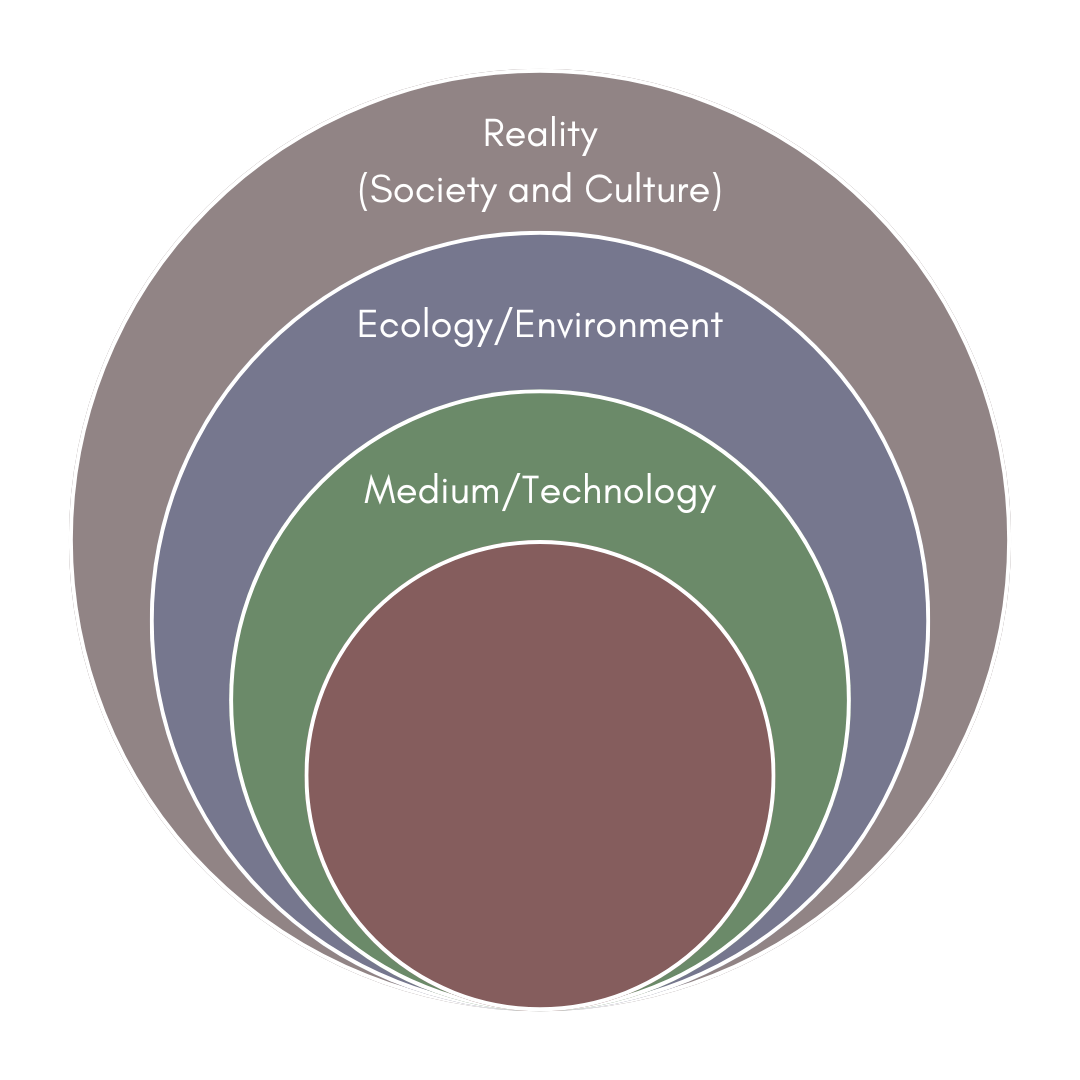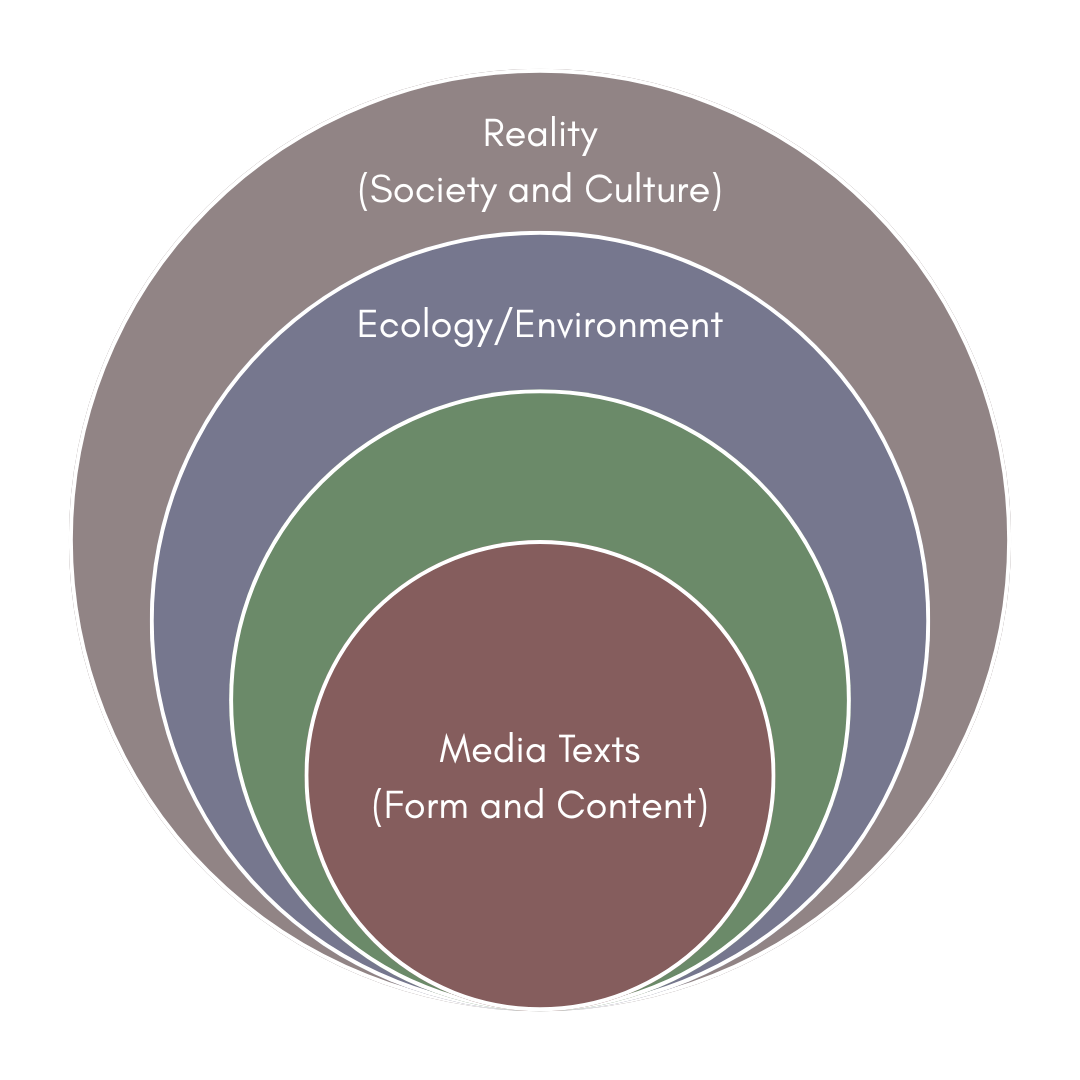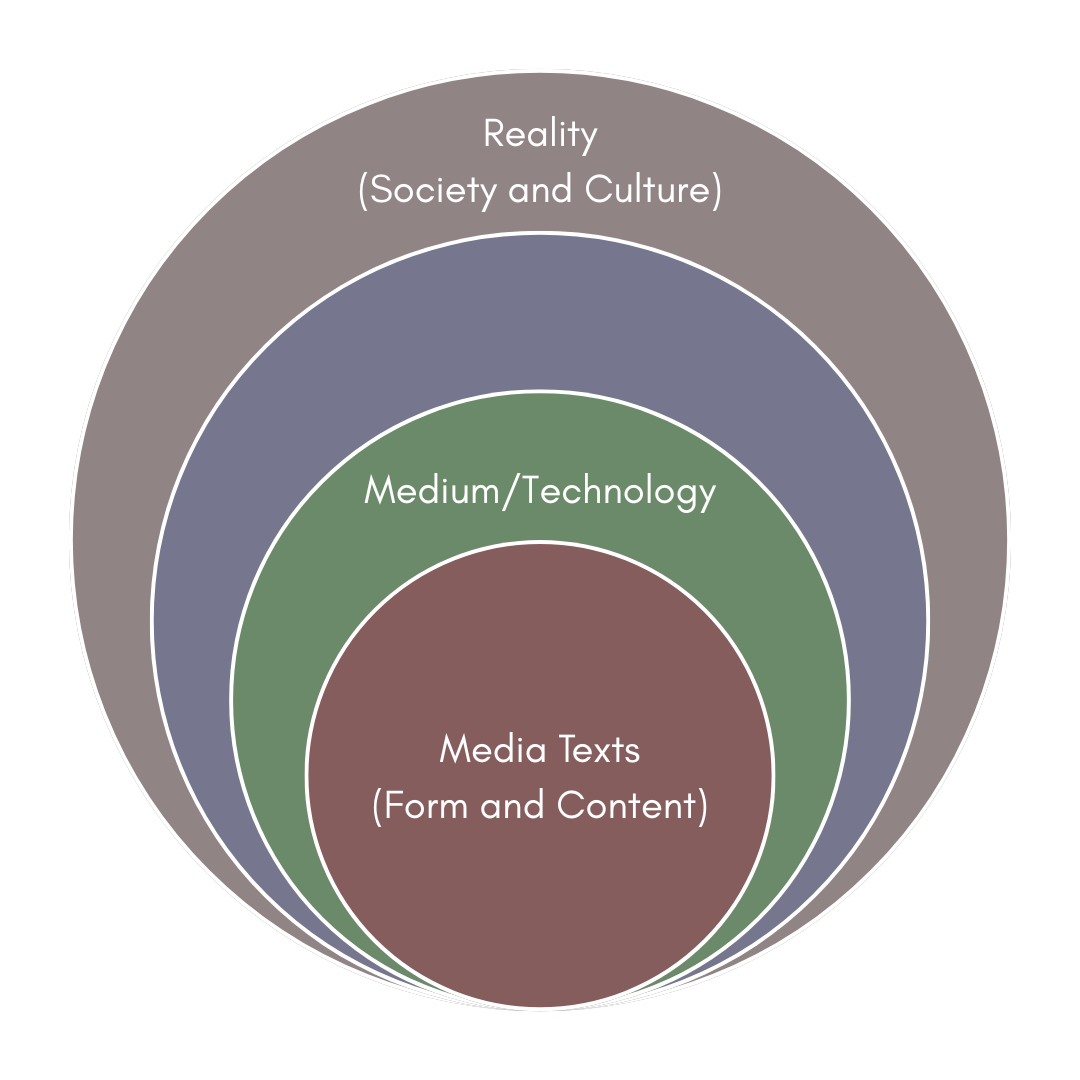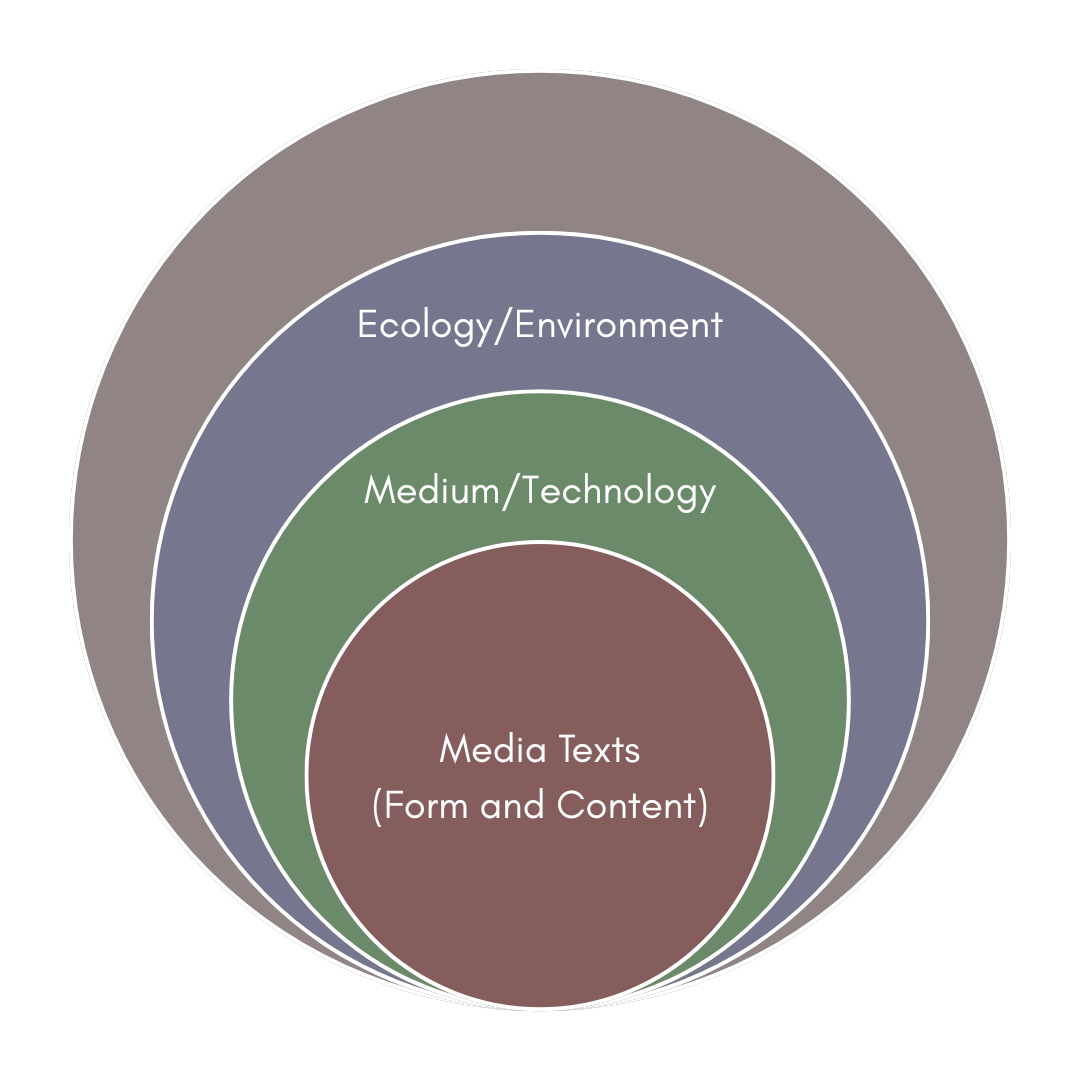FILM 113 glossary
1/104
There's no tags or description
Looks like no tags are added yet.
Name | Mastery | Learn | Test | Matching | Spaced | Call with Kai |
|---|
No analytics yet
Send a link to your students to track their progress
105 Terms
Algorithm
A set of computer program rules that sort, filter, and deliver content on digital platforms.
Cyberculture
The culture arising from the internet and digital technologies, including online communities and digital art.
Mediatised
Events or experiences shaped for media representation, emphasising media influence on social life.
Mediatisation
The process by which media technologies shape culture, society and behaviours, integrating media logic into various aspects of life.
Mickey Mouse degree
A derogatory term for university degrees seen as easy or of little real-world value.
Reality
The actual state of things, influenced by media in how we perceive and understand the world.
Deep Mediatisation
A concept that describes how media and communication technologies are deeply embedded in every aspect of social life, fundamentally shaping our realities, institutions and personal relationships.
Discourse
In the context of media and communication, it refers to written or spoken communication and the structures of knowledge that give meaning to how topics are discussed and understood in society.
Media Ecology
An approach that studies media environments as ecosystems, examining how media and communication technologies interact with culture, society and individual behaviour in complex ways.
Media Logic
The theory that new media and communication technologies have their own sets of rules, structures and patterns of thought, which influence how content is produced, distributed and consumed, thereby shaping cultural and social realities.
Recursion
In general terms, it refers to the process of repeating items in a self-similar way. In the context of Media Studies, it can refer to the repetitive nature of media processes or the use of feedback loops in communication and media production.
Remediation
The theory that new media achieve cultural significance by refashioning or incorporating the techniques and forms of older media, thereby shaping the way individuals engage with and understand media content.
Social Construction
A theory that argues that our understanding of reality is shaped through our social interactions and cultural and historical contexts, suggesting that knowledge and truths are constructed, not inherently natural or objective.
Prosumer
An individual who both consumes and produces media content, blurring the traditional distinction between consumers and producers in digital culture.
Participatory Culture
a culture in which private individuals (the public) do not act as consumers only, but also as contributors or producers (prosumers), engaging in the creation and sharing of media content.
Deep mediatisation
A concept that describes how media and communication technologies are deeply embedded in every aspect of social life, fundamentally shaping our realities, institutions and personal relationships.
Media logic
The theory that media and communication technologies have their own sets of rules, structures and patterns of thought, which influence how content is produced, distributed and consumed, thereby shaping cultural and social realities.
Recursion
In general terms, it refers to the process of repeating items in a self-similar way. In the context of Media Studies, it can refer to the repetitive nature of media processes or the use of feedback loops in communication and media production.
Social construction
A theory that argues that our understanding of reality is shaped through our social interactions and cultural and historical contexts, suggesting that knowledge and truths are constructed, not inherently natural or objective.
Connotation
The associative or secondary meaning of a word or expression in addition to its explicit or primary meaning.
Denotation
The direct, literal and specific meaning of a sign, devoid of any emotion, attitude or coloration that might be attached to it.
Iconic sign
A sign that physically resembles or is a likeness of the object it represents.
Indexical sign
A sign that is directly connected to its object by a causal link, physical or otherwise, such as smoke indicating fire or a thermometer reading indicating temperature.
Myth
In Media Studies, it refers to a widely held but false belief or idea that is used to justify social, cultural or political circumstances. It transcends simple storytelling to become a naturalised concept, often taken for granted as being true or natural within a society.
Polysemic
Describing a sign or symbol that can carry multiple meanings or interpretations. In Media Studies, it is open to various interpretations by different audiences, reflecting the diverse backgrounds and perspectives of its interpreters.
Rhetoric
The art of effective or persuasive speaking or writing, especially the use of figures of speech, images and other compositional techniques.
Semiotics
The study of signs and symbols and their use or interpretation. In Media Studies, it is a foundational theory that explores how meaning is constructed and understood through the use of signs (anything that represents something else) in communication.
Sign
The basic unit of meaning in semiotics, which can be a word, image, sound, gesture or object that stands for or represents something else. Signs consist of a signifier (the form that the sign takes) and the signified (the concept it represents).
Signification
The process of creating meaning through the use of signs. In Media Studies, it involves the ways in which signs convey specific meanings to audiences, shaping their understanding of the text, image or sound.
Symbolic sign
A sign where the relationship between the signifier and the signified is arbitrary and based on convention rather than resemblance or causal connection. Language is a primary example, where words are symbolic signs that do not physically resemble what they stand for.
Discourse analysis
A method used in several fields such as linguistics, sociology, anthropology, psychology, and communication studies to examine and understand cultural implications of language. Rather than merely focusing on individual words or sentences, it involves studying larger units of language, such as entire conversations, texts, or collections of texts. It seeks to understand how these larger structures of language help to organize and structure social life, convey meaning, manage relationships, construct identities, and create systems of knowledge.
Echo chamber
A term often used to describe a situation in which beliefs, ideas, or theories are amplified or reinforced by communication and repetition inside a defined system, often without being challenged or fact-checked.
Fake news
Misinformation or disinformation presented as genuine news. This term has become particularly prevalent in the age of digital media, where such false information can spread quickly and easily.
Filter bubble
A term that describes a state of intellectual isolation that can occur when websites make use of algorithms to selectively assume the information a user would want to see based on information about the user, such as location, past click behaviour and search history.
Hegemony
A term that comes from political theory and refers to the dominance of one group over other groups, with or without the threat of force.
Ideology
A set of beliefs, values and ideas that form the basis of a sociopolitical programme, economic system or cultural perspective.
Post-truth
A term that describes a cultural or political condition in which objective facts and truth are less influential in shaping public opinion than appeals to emotion, personal beliefs or ideologies.
Power
The ability or capacity to influence others' behaviour or the course of events. It can be derived from various sources, such as one's social status, wealth, knowledge, charisma or control over resources.
Post-Fordism
Refers to the transformation of industrial economies from mass production and mass consumption to more flexible forms of production, emphasising customisation, information technology and decentralised decision-making.
Post-industrial society
Society that emphasises a shift from an economy based primarily on industry and manufacturing to one where services, technology and information dominate.
Consolidation
The process where smaller companies, or their assets, are combined into a single entity, often leading to fewer companies controlling a market or industry.
Big Data
Refers to extremely large data sets that may be analysed computationally to reveal patterns, trends and associations, especially relating to human behaviour and interactions. It's chatacterised by its volume, velocity and variety.
Biopower
A concept introduced by Michel Foucault that refers to the practice of modern states and their regulation of subjects through "an explosion of numerous and diverse techniques for achieving the subjugations of bodies and the control of populations.”
Digital oil
A metaphor often used to describe data's value in the modern economy. Just like oil in the 20th century, data is seen as a crucial, highly valuable resource that drives innovation, economic growth, and competitive advantage in the digital age.
Digital economy
Refers to an economy that is based on digital computing technologies. It encompasses all business, economic, social and cultural activities that are supported by the web and other digital communication technologies.
Feudalism
A historical economic and social system in medieval Europe, where society was structured around relationships derived from the holding of land in exchange for service or labour. It was characterised by a hierarchy of lords, vassals and serfs.
Platform capitalism
A term that describes a new economic and social system where digital platforms (e.g. social media, e-commerce sites) play a central role in mediating economic transactions and social interactions, often capitalising on data and network effects.
Polarisation
The process by which opinions, perspectives or approaches in a society become divided into two significantly opposing sides, often leading to increased tension and conflict within social or political contexts.
Utopia
A term used to describe an imagined community or society with highly desirable or nearly perfect qualities for its citizens. The concept often explores ideals and ethical considerations in social, political and moral aspects.
Media Texts (Form and Content)

Medium/Technology

Ecology/Environment

Reality (Society and Culture)

A set of instructions or rules designed to perform a specific task or solve a particular problem. It's a step-by-step procedure used in computations.
Medium Theory
Theoretical approach that seeks to explain how media (ie TV & radio), shape human behaviour and cultural values.
Cultural Codes
Recognition and interpretation of these images depend on shared social knowledge and histories, underscoring how meaning is made and remade through cultural processes.